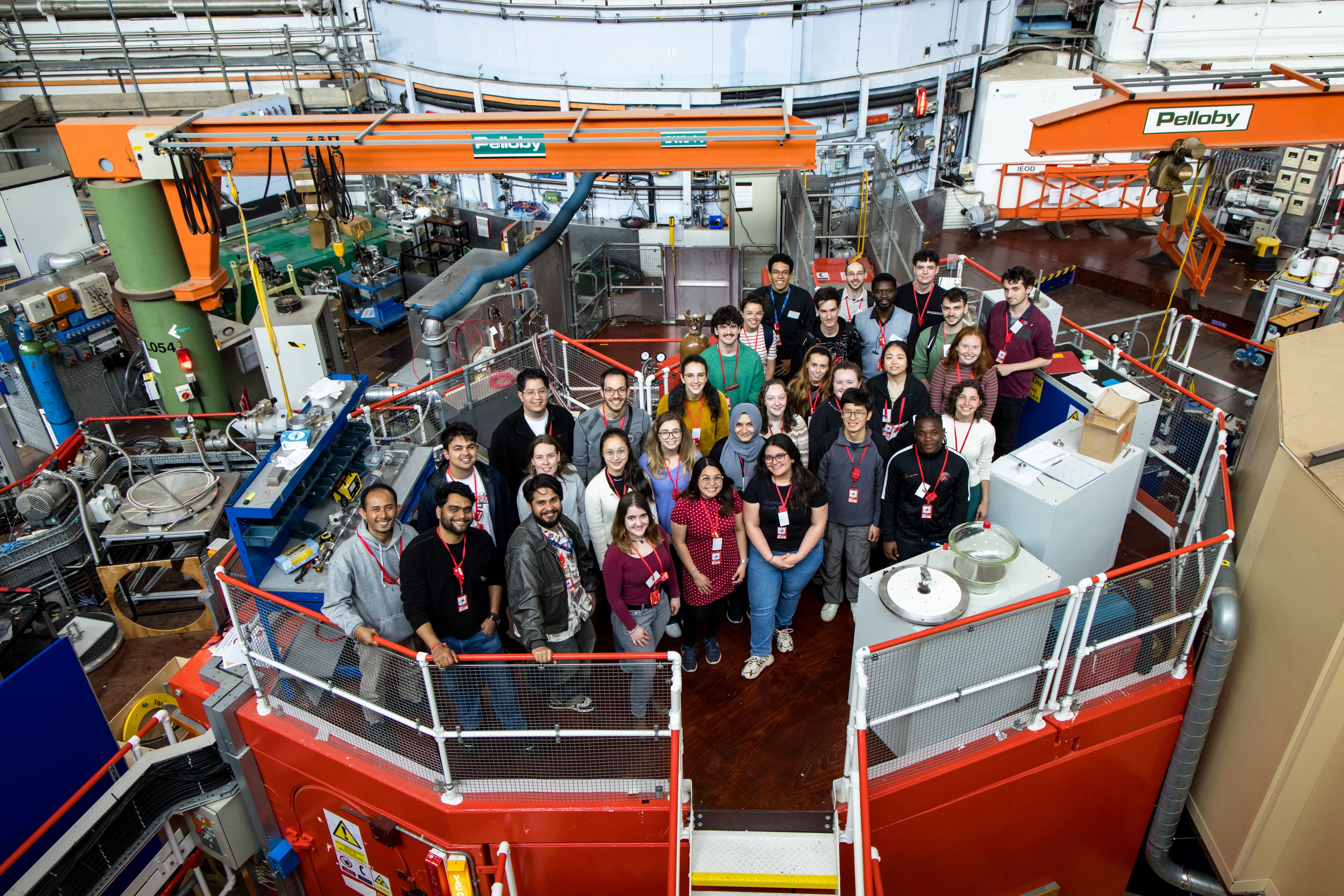The course is in two parts: a lecture/tutorial based course lasting 3 days, followed by a practical instrument-based training course lasting 4 days.
The next course will run on:
27th - 29th October 2025 (lectures and tutorials)
24th - 28th November 2025 (practical training at ISIS)
Closing date for applications: 7th July 2025, 17:00 UK time

The 2024 ISIS Neutron training course students on top of the MERLIN instrument at ISIS
|
|
Outline of CourseThe lecture course will take place over 3 days, and is intended for all reserachers interesting in learning the fundamental priciples of neutron interactions with matter - including neutron scattering theory, instrumentation and applications. This part of the course will also include small-group tutorial sessions and a proposal writing practice exercise.
One month after the lectures, the attendees come back to ISIS for practical instrument based training in one of four available modules. Course attendees are also encouraged to attend
the annual ISIS
Student Meeting, which will take place on the 26 November, in between the course’s
practical experimental days, which has a separate registration form.
- Magnetism and superconductivity
Course includes practical training in wide angle and small angle magnetic diffraction, magnetic inelastic scattering and reflectometry from magnetic thin films.
- Structure and Spectroscopy
Students will conduct diffraction experiments on powder, single crystal and amorphous/liquid materials, learning Reitveld and pair distrubution analysis techniques. Training in solid-state phonon and molecular (vibrational) spectroscopy techniques including quasi-elastic neutron scattering will also be given.
- Materials Science and Engineering
This module will include wide and small-angle diffraction techniques, including strain scanning experiments. Additionally, imaging and tomographic studies of materials will be covered. - Soft Matter and Biology
Emphasis will be given to small-angle scattering and reflectometry experiments on non-crystalline materials. Spectroscopic studies of soft-matter and proteins in solution will also be covered.
There will be places for up to around 50 students on the ISIS Neutron Training Course, with a maximum of 10 participants on each course module. The course includes free accommodation at
Cosener's House in Abingdon, and is free to participating attendees.
Selection criteria for applications to the Neutron Training Course
Applications for the Neutron Training Course are assesed by a selection panel according to the following criteria (in order of importance):
- Preference is given to applicants who, in the judgement of the selection committee, will make significant use of neutron scattering in their research. This is assessed via a research statement provided by the applicant and a recommendation statement by the research supervisor.
- Preference is given to applicants who are in the very earliest stage of their reserach using neutron scattering.
- Applicants must be either postgraduate students or postdoctoral researchers working from UK funded institutions
- Preference is given to students or post-docs from new user groups
The selection committee is made of of the ISIS Neutron Training Course co-ordinators and an external ISIS user representative. Due to the high demand for places, we regret that we are unable to accept either undergraduates or masters students on the course.
Course Organizers
